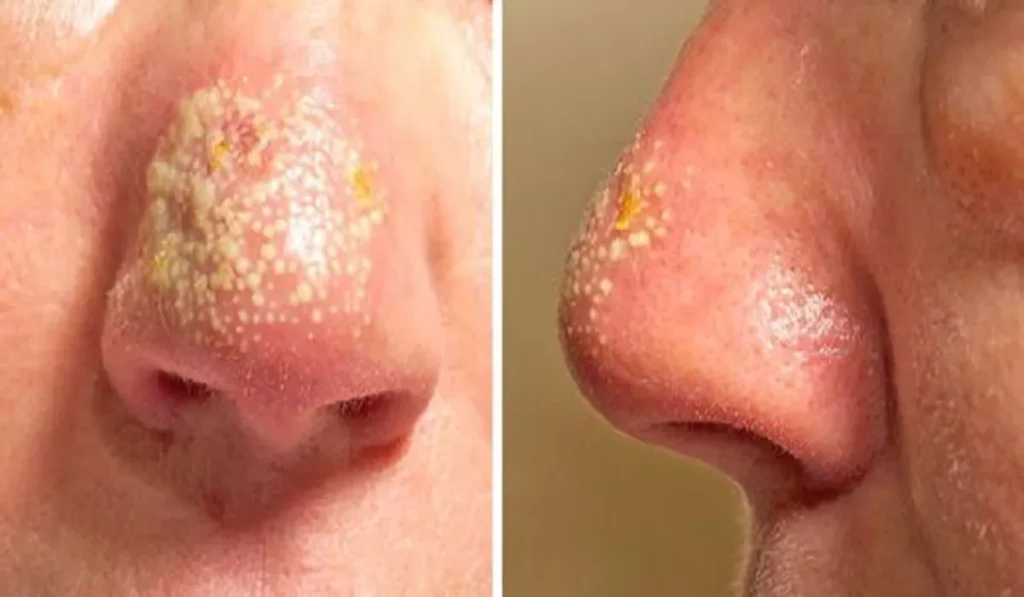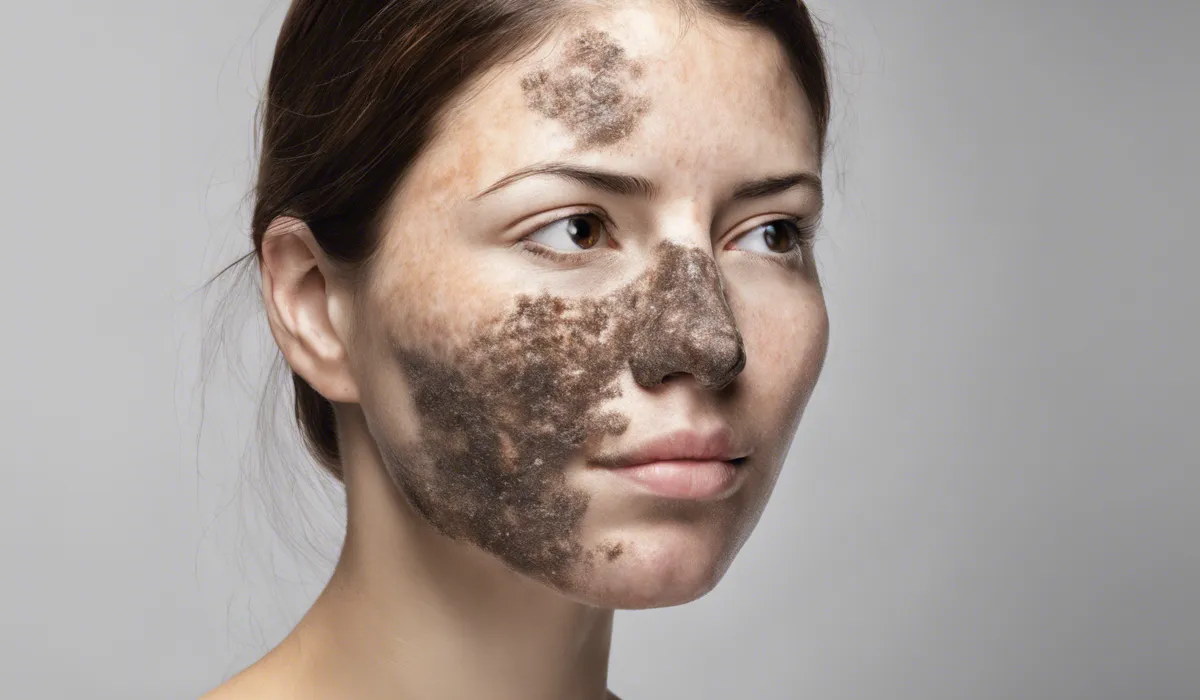Yes, mold exposure can cause a burning sensation in the nose. This occurs due to the irritation of the mucous membranes within the nasal passages. People with mold allergies may experience more intense symptoms, including a burning nose.
Mold and Its Effects on the Human Body

What Is Mold?
Mold is a type of fungus that can grow both indoors and outdoors. It comes in various forms and colors, such as black, white, orange, green, or purple.
Mold reproduces by releasing tiny, lightweight spores that travel through the air. These spores thrive in moist environments, often resulting in colonies that can grow on a multitude of surfaces.
Common Mold Habitats
Mold thrives in damp, warm, and humid conditions. Common places where mold can be found include bathrooms, kitchens, basements, and areas around leaks in roofs, windows, or pipes.
Poor ventilation contributes to mold growth by trapping moisture and creating an ideal breeding ground for these spores.
Health Impacts of Mold
While mold is a natural part of the environment, it can have negative effects on human health, especially when it grows indoors.
Exposure to mold can lead to a variety of health issues, particularly for people with allergies or compromised immune systems.
It can cause respiratory problems, skin irritation, and sometimes more severe reactions depending on the individual’s sensitivity.
Symptoms of Mold Exposure
Common symptoms of mold exposure include sneezing, coughing, watery eyes, a runny nose, and in some cases, a burning sensation in the nose.
Long-term exposure can lead to more serious conditions such as asthma or other respiratory infections.
It is important to be aware of these symptoms and seek medical advice if they persist.
Connection Between Mold Exposure and Nasal Irritation

Burning Sensation from Mold
When mold spores come into contact with the nasal passages, they can irritate the sensitive mucous membranes.
This irritation can cause a burning sensation, a sign that the body is reacting to an unwelcome intruder. The degree of discomfort can vary from person to person.
Mold Spores and Respiratory Health
Mold spores are small enough to be inhaled deeply into the lungs, which can lead to respiratory irritation.
Symptoms can include coughing, wheezing, and shortness of breath. It is critical to address mold problems promptly to protect long-term respiratory health.
Allergic Reactions to Mold
Many individuals have allergies to mold. An allergic reaction can lead to symptoms such as a stuffy nose, itchy eyes, and skin rashes.
In some cases, these reactions can be quite severe, resulting in allergic fungal sinusitis or even asthma exacerbations.
Mycotoxins and Mucous Membranes
Some molds produce toxic compounds known as mycotoxins. These can cause a burning sensation in the nose and other mucous membranes.
Extended exposure to mycotoxins can be harmful, so it is essential to remove mold sources to limit exposure to these toxins.
Managing and Preventing Mold-Related Nasal Discomfort

Identifying and Removing Mold
To combat mold-related nasal discomfort, it is important to identify and remove mold from your environment. Look for visible mold or musty odors, which are strong indicators.
Once found, mold can often be removed with cleaning solutions, but persistent or extensive growth may require professional remediation.
Medical Treatments for Mold Exposure
If you are experiencing nasal irritation due to mold exposure, various medical treatments can help alleviate symptoms.
Over-the-counter antihistamines and nasal sprays can provide relief. In more severe cases, a doctor may prescribe stronger medications or recommend allergy shots.
Reducing Mold Growth Risks
To prevent mold growth, control moisture levels in your home by using dehumidifiers and ensuring adequate ventilation.
Fix leaks promptly, and clean and dry any water-damaged areas within 24-48 hours to prevent mold from taking hold.
Seeking Professional Help for Severe Infestations
In cases of severe mold infestation, it is crucial to get professional help. Experts in mold remediation can assess the situation, remove the mold safely, and advise on preventing future growth.
Taking quick and decisive action can protect your health and your home from the damaging effects of mold.
FAQs About Mold and Nasal Irritation
Can mold exposure cause a burning sensation in the nose?
Yes, mold exposure can cause a burning sensation in the nose due to irritation of the nasal mucous membranes.
Is a burning nose a common symptom of mold allergies?
Yes, a burning nose is a common symptom among individuals with mold allergies.
What causes the burning sensation in the nose from mold exposure?
The burning sensation is caused by the irritation of mucous membranes within the nasal passages from mold exposure.
Can people without mold allergies experience a burning nose from mold?
Yes, even individuals without mold allergies can experience a burning sensation in their nose due to mold irritation.
Are the symptoms of a burning nose from mold exposure more intense for allergic individuals?
People with mold allergies may experience more intense symptoms, including a more pronounced burning sensation in the nose.
Final Thoughts
Mold exposure can indeed lead to a burning sensation in the nose, primarily because it irritates the nasal passage’s mucous membranes.
Individuals who have allergies to mold are likely to experience more severe symptoms, including this uncomfortable burning feeling in their noses.
